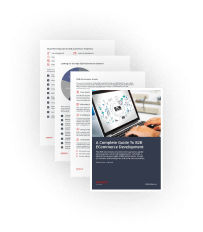A close and strong relationship with customers is a fundamental part of your business. Today, the marketplace is incredibly competitive and store owners use various loyalty programs and promotional credits to keep customers coming back. Improving customer loyalty should be a priority for everyone who wants to gain trust and increase sales.
It’s a good idea to focus on customers’ wishes. All of us like to get presents and enjoy surprises, especially on birthdays. Don’t you think that it’s a wonderful chance to pay attention to your clients? Let them feel how much you care and build long-term, friendly relationships.
Few Words About
The loyalty program (LP) represents a marketing campaign to enhance your clients to purchase more or just keep on purchasing in your shop. LPs can be supported by a physical medium like plastic card with or without barcode, magstripe or NRC technology. Independently on the carrier availability, three main forms of a loyalty program have become popular worldwide in recent years. They are:
- Frequent Flyers;
- Card Linked Offers;
- and Loyalty Apps.
For convenience and for the sake of this article, we call them FFs, CLOs, and LAs, respectively.
Invented and established in 1981 by American Airlines the FF loyalty programs are still in use. They reward customers with points earned through flights: the more you fly – the more you get points. Year 2010 was the rise of Card Linked Offers as a new loyalty marketing technique that relied on mobile payment and coupons. As compared to FFs, CLOs are closely connected with credit or debit cards and allow redeeming at a point of sale (POS). Offers are typically based upon consumer preferences and purchase history. The loyalty cards now see their gradual aging and would be replaced or give some place to the loyalty apps. LAs will allow to download the program on your smartphone and get a better connection with the customer. Mobile apps are handier as compared to cards as they always contain the latest information. In addition to traditional perks acquired with a loyalty program, with LAs customers have an opportunity to track their loyalty level, see their orders and even make a pre-order. A nice example is the Starbucks loyalty app.
New techniques are quite clear now.
So, what about customer behaviour?
In 2016, 69 percent of Millennial respondents’ value was the product or service recommendations compared with just 45 percent of Baby Boomer respondents. In 2018, the American Millennials’ most common criticism of loyalty programs was that their rewards expired before they were able to use them.
The customer behaviour varies not only from the age category but also depending on a particular location.
What are the preferences by countries?
UK: food and clothing
In 2017, a survey reported by Statista on participation in point collection programs tells that 87 percent of UK respondents took part in a reward program sponsored by a supermarket, while 30 percent are members of a clothing shop loyalty scheme.
Germany: points reward
Statista stipulates that 43 percent said they find the possibility to collect points as quite important. 36 percent and 31 percent of respondents indicated the importance of the quality and quantity of the rewards shop respectively.
US: free products
In 2018, 77 percent of the US respondents stated that they like free products when participating in a loyalty program.
Canada: benefit maximizing
In 2107, 58 percent of responding Canadians said that they modified their brand purchases in order to maximize the benefits they received.
Closing
The loyalty program has been invented quite a long time ago. It transformed to meet the challenges of modern society and technology. The Simtech Development has the respective Loyalty Program add-on that helps to easy finetune your rewarding scheme.
What’s more?
Read a similar topic…

